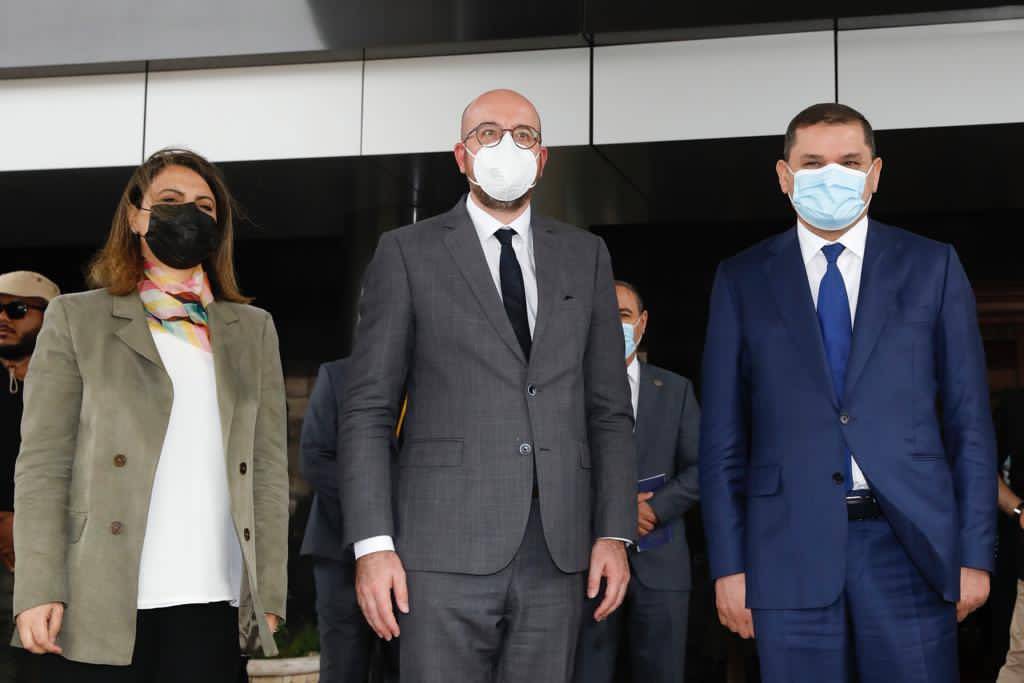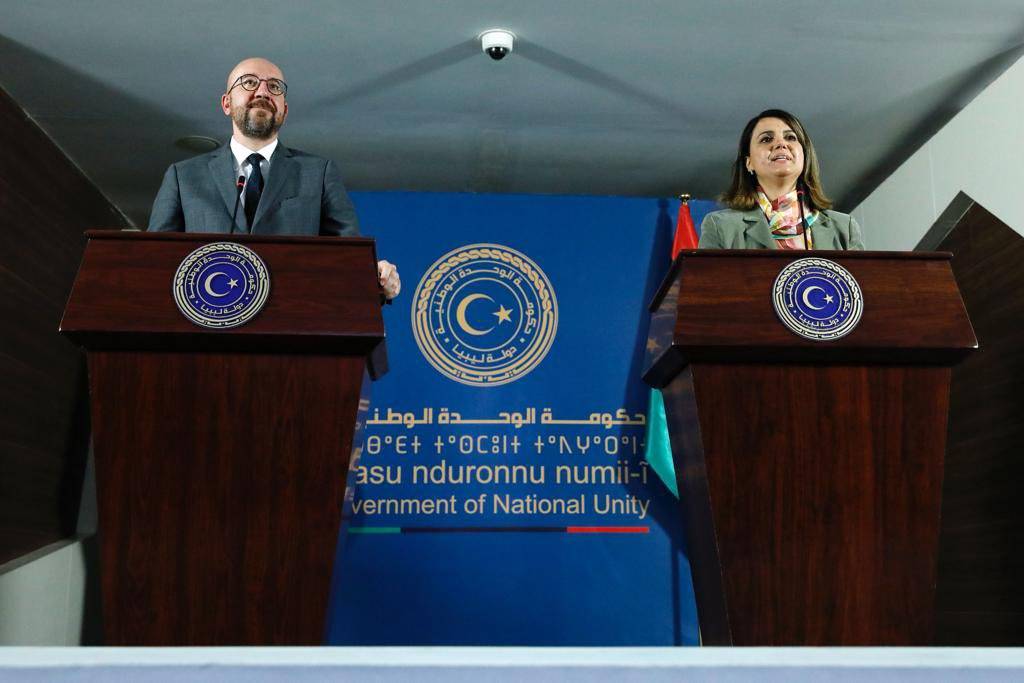
EU ready to provide all forms of support to the Government of National Unity to retain stability and peace in the country and hold upcoming elections…reports Asian Lite News
Charles Michel, President of the European Council, met the Prime Minister of Libya Abdul Hamid Dbeibah in the capital Tripoli, and stressed the European Union (EU)’s support for stability in the war-torn country.
“Michel expressed the EU’s readiness to provide all forms of support to the Government of National Unity to enhance stability in the country and hold elections,” Xinhua news agency quoted a statement issued by the Libyan Government of National Unity.
“Michel also emphasised that all the EU countries speak with a unified voice regarding supporting the Libyan authorities in all issues, including development, immigration, security, and elections,” it said.
The Prime Minister commended the EU’s role in supporting stability and security of Libya, stressing the importance of the Libyan-European partnership and cooperation in issues of mutual interest, the statement added.

In a tweet on Sunday, Michel said: “I came to Tripoli in a moment of hope and challenges. The EU stands by the Libyan people and its new leadership.
“We are ready to increase our support to a unified, sovereign, stable and prosperous Libya.”
Also read:Libya gets 1st Covid vaccine batch
Dbeibah’s Government of National Unity was approved by the House of Representatives (Parliament) in a major step towards re-establishing stability in the country that has been roiled by conflict for a decade.
The interim government is tasked with preparing for national elections, scheduled for December 24.

This government has replaced the UN-backed Government of National Accord (GNA), which has been in charge of Tripoli and western areas, alongside the competing eastern administration linked with warlord Khalifa Haftar.
Libya plunged into chaos after the fall of late leader Muammar Gaddafi’s government in 2011, witnessing prolonged conflict between the eastern-based Haftar-led Libyan National Army (LNA) and the GNA in the country’s west.
Due to the protracted armed conflict, political and economic crises and the coronavirus pandemic, nearly 1.2 million people, including over 348,000 children, require humanitarian assistance in Libya, according to the Unicef.
Also read:EU states agree on ‘solidarity vaccine’


